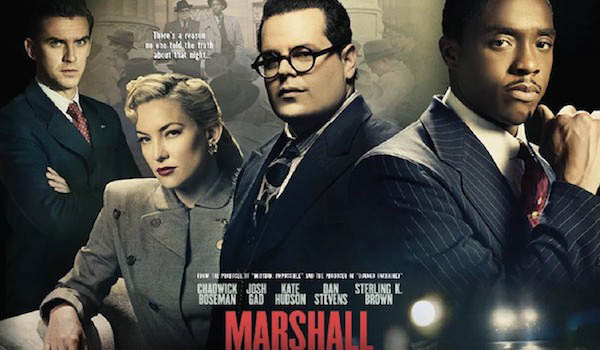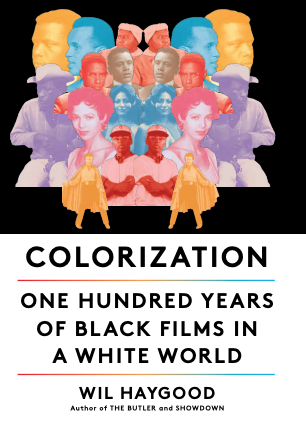
Film producer/director Reginald Hudlin to receive the Freedom Summer of ‘64 Award

Reginald Hudlin is a writer, producer, director, and executive who promotes diversity in his work. He will receive Miami's Freedom Summer of '64 Award during Miami's inaugural Film Festival Series on Nov. 7.
By Carole Johnson, university news and communications
Miami University will honor major motion film producer/director Reginald Hudlin with the Freedom Summer of ‘64 Award on Sunday, Nov. 7, for his contributions in bringing the Black image to screen.
The award is bestowed by Miami each year upon a distinguished leader who has inspired the nation to advance civil rights and social justice.
In Oxford in 1964 — at what was then the Western College for Women but is now part of Miami University’s Western campus — Student Nonviolent Coordinating Committee leader Bob Moses led the training of 800 college students to travel to the South to register Black voters.
Miami strives to honor the legacy of those who worked for civil rights and social justice and, in the case of Michael Schwerner, 24, James Chaney, 21, and Andrew Goodman, 20, Freedom Summer activists who gave their lives in service to humanity.
The Freedom Summer of ‘64 Award has recognized such notables as U.S. Rep. John Lewis, radio talk-show host Joe Madison, former president of the League of Women Voters Carolyn Jefferson-Jenkins, and NBA executive and basketball icon Wayne Embry (Miami ‘58) and his late wife Terri Embry (Miami ‘60).
“These are superheroes who risked their lives,” Hudlin said of those who trained in Oxford in 1964. “I feel very humbled in that in any way what I do can be compared to what those heroes did. I am inspired and feel a sense of mission.”
The award will be presented to Hudlin during the first Miami University Freedom Film Festival to be held Nov. 7-12. He will give the keynote address. Details will be announced at a later date.
 “We are so honored to present Reginald Hudlin with the Freedom Summer of ‘64 Award,” Miami University President Gregory Crawford said. “His work and passion to promote diversity in the film industry and bring Black American stories to the forefront have advanced justice and equality on a national and global scale.”
“We are so honored to present Reginald Hudlin with the Freedom Summer of ‘64 Award,” Miami University President Gregory Crawford said. “His work and passion to promote diversity in the film industry and bring Black American stories to the forefront have advanced justice and equality on a national and global scale.”
Hudlin, a founder and president of Hudlin Entertainment, is known as a “renaissance man” for his work in film, television, and comic books. He is unique in his approaches as a writer, producer, director, and executive.
Hudlin wrote and directed his first film, “House Party,” in 1990. He produced Quentin Tarantino’s 2012 film, “Django Unchained,” which earned an Academy Award nomination for best picture.
He directed and produced his 2017 film, “Marshall,” which starred Chadwick Boseman as Thurgood Marshall, the first Black Supreme Court justice.
In television, he produced shows such as “The Boondocks,” “Friday Night Vibes” with Tiffany Haddish, The Black Panther animated series, and specials such as the “Oscars” and the “NAACP Image Awards.” He was the first Black person to produce the Emmys, which he has done twice.
Hudlin also is an author, writing for the comic books Black Panther, Spider-Man, and the Milestone Media line, Black superheroes.
“I’m known to zag when I’m supposed to zig,” Hudlin said of his long-lasting career, which has provided him with a platform to honor the Black experience through powerful but grounded characters in true-to-life storytelling.
Award presentation coincides with release of Colorization

The Miami University Film Festival will feature the release of Miami alumnus and Boadway Scholar-in-Residence Wil Haygood's new book.
The Freedom Summer of ‘64 Award ceremony will coincide with the official release of Boadway Distinguished Scholar-in-Residence Wil Haygood’s latest book, Colorization: One Hundred Years of Black Films in a White World.
“Reginald Hudlin’s illustrious and sweeping cinematic career, which encompasses a wide range of diverse filmmaking with a social conscience, makes him a wonderful choice to receive the Freedom Summer Award,” said Haygood (Miami ‘76), author of Showdown: Thurgood Marshall and the Supreme Court Nomination that Changed America (2015).
“Hollywood is a better place because of his monumental contributions when it comes to equality and representation,” Haygood said.
Hudlin grew up enjoying movies like “Animal House” and “Risky Business.” These inspired him to draw from his own real-life experiences. Hudlin’s father, Warrington Hudlin, was the owner of an insurance agency, and his mother, Helen, was a special education teacher. They raised their family in East St. Louis, Illinois, where poor economic misfortunes lived alongside rich cultural opportunities.
A major influence in his life was the 1960s dancer and choreographer Katherine Dunham, whose youth programs served as the catalyst that led Hudlin to Harvard, where he graduated magna cum laude. His senior thesis was a 20-minute short film called “House Party,” depicting the experience he lived as a Black student.
He also cherished the late Stan Lee, creator of the Marvel comic books. In the superheroes that Lee created — real people with human flaws — Hudlin could relate. Lee and Jack Kirby’s Black Panther character was originally introduced to audiences in the 1966 comic books. Hudlin was asked to head up a relaunch of the character, writing the comic book series from 2005-2008. He received critical acclaim for his well-rounded portrayal of a Black superhero.
“Stan Lee introduced psychology and flaws into superheroes, which made them more relatable and interesting,” said Hudlin, who bases his character development on this premise.
When working on his latest movie “Marshall,” Hudlin tells the story behind one of Marshall’s earlier cases as an attorney, but with a nod to true character.
“I wanted to take Marshall off of the pedestal we place him on and show him as the hard-drinking, smack-talking guy he really was, even though he was always the smartest guy in the room no matter what room he was in,” Hudlin said. “It makes him more relatable so people can see that his kind of success can be attainable.”
No matter the genre, Hudlin’s superhero-like drive to bring the Black image to audiences epitomizes the spirit of Miami’s Freedom of ‘64 Award.
